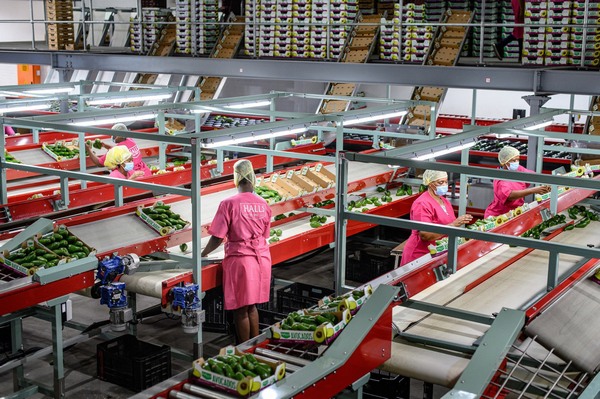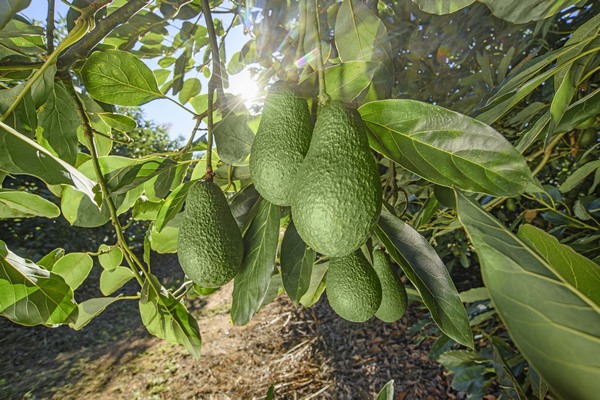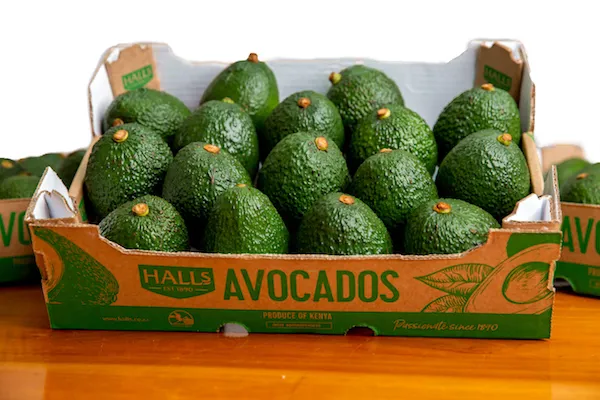Logistical challenges, unexpected weather conditions, competitive markets. "Avocado highs and lows always seem just a little more extreme," begins Halls' Arjan Verhagen. This avocado supplier is thus developing rapidly all over the world regarding sourcing.

photo Halls
Halls has branches in South Africa, the United Kingdom, France, the Netherlands, Spain, Germany, and China. It can, thus, rightly call itself a global player. This tropical produce producer and supplier specializes in avocados. "In the 1990s, Halls was the first to provide ready-to-eat avocados in the UK. The group now has five offices, four of which are in Europe, and we remain committed to further expansion."
Logistical challenges
Arjan says vast numbers of avocado trees have been planted worldwide in recent years. "Still, we're working on alternative and new origins. Why? To ensure even better supply distribution and continuity." At the time of writing, in early October, Halls was receiving the last supply of South African avocadoes in Kenya. "It was a fairly normal season. There are, and have been, logistical challenges here for two years. Sometimes it takes up to 28 days instead of 21 for a container to arrive," he says.

In South Africa, Halls RSA has been working with several regular growers for many years and has its own production. That country still depends heavily on the European market, but in the coming years, it is likely to gain access to the Chinese and other Asian markets. In South Africa, Halls sources avocados from more than 1,500 hectares, where growers cultivate mainly green varieties like Pinkerton, Fuerte, Ryan, and others. However, the new plantings are almost all of the Hass variety.
Water availability is a major concern
"In South Africa, production begins in March in Louis Trichard, in the far north-east of the country, in the Limpopo province. Nelspruit and surrounds in the Mpumalanga province follow. The season ends in October in the Kranskop production areas, in the southeast of the KwaZulu-Natal province," explains commercial manager Henk Stolk.
He says that, in the coming years, the Western Cape will play an ever-more significant supply role in October and November. "Every region's climate is changing, ranging from rain and wind to frost, hail, and heat. Water availability is also a major concern. Local regulators strictly monitor our use, and we do everything we can to comply with all the regulations. We want to be at the forefront of this too."
Also, this winter, Halls is further expanding its supply for the Mediterranean, where it works exclusively with producers who meet their Responsibly Sourced Network standards. "We have a roughly 40,000-hectare sourcing area there, with productions mainly in Spain, Portugal, Morocco, Greece, Turkey, Italy, and Israel. And that acreage keeps growing. We should be getting more avocados from Portugal in the coming years. That acreage is now about 3,000 hectares, but that's undoubtedly going to increase," continues Henk.

Brazilian avocados are proving a valuable summer addition. Halls has spent years developing that country as an avocado-growing region. Brazil's climate is well suited to avocado cultivation, and there's much focus on the fruits' ripeness. Also, it can be shipped from Brazil to Europe within 15 days. Therefore, in the coming years, Brazil will become an important 'summer supplier' for all Halls European locations. According to Henk, those avocados look and taste similar to European ones.
Market expectation
What do the coming months hold? Arjan expects Chile to send more this season than last year, but that season should be somewhat shorter. Also, Israel has had unfavorable weather.
"It remains a supply and demand game, with demand currently being a bit disappointing. That can all change in a flash, though. Will inflation make consumers more cautious? Perhaps. That's not the case yet. All we can do is wait and see," he concludes.
Arjan Verhagen Halls
Halls
Tel: +31 (0) 174 791 043
Email: [email protected]
Website: http://www.halls.co.za/
